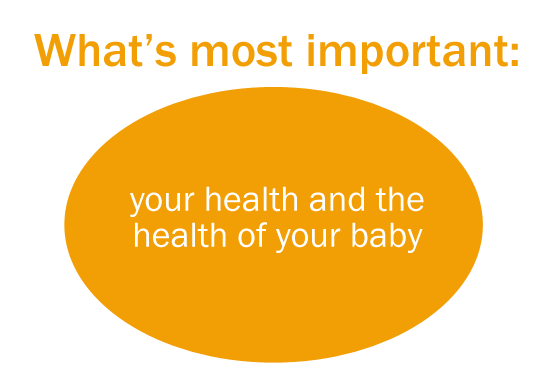“Congratulations, you’re pregnant! How exciting! Take all of the extra time off you need. Just take care of yourself!”
Wouldn’t it be great if every employer reacted that way? Unfortunately, that’s not the case.
Know Your Maternity Leave Rights

While your boss might be happy for you, her next thought might be: Can she still do this job?
Hopefully, you won’t have to go there, but in case you do, it’s important to know what that certain laws are in place to protect you and your job.
The Pregnancy Discrimination Act gives you the following protections:
- Your employer can’t fire you, but must treat you as any other temporarily disabled employee
- Employers cannot give your job away during your time off. They have to hold your position just as they would for someone with any other type of short-term disability.
- If you use your company’s insurance plan, it must treat pregnancy-related conditions the same as other medical conditions
Great. So, I’m Covered! Well. Not Exactly.
Unfortunately, the number of pregnancy-related discrimination charges have jumped by about 30% in the past decade, according to the EEOC.
You may be concerned that your peers and superiors will overlook you for big projects or promotions. You may worry that people will view you as being less productive.
These are valid concerns. Here’s how to deal with them:
Spilling the Beans: How to Tell Your Employer You’re Pregnant
Start by telling a trusted colleague who you know will react with joy. This will give you a boost of support to handle the harder conversations.
Next, if you can confide in a co-worker who recently had a baby herself, ask what happened when she told the boss.
Do your research. In addition to knowing the maternity leave laws in your state, read your employee handbook and find out what benefits you are entitled to and how much time off your company is required to offer you.
Then, when it’s time, here are two ways to approach the conversation with your boss:
If you think it will be an easy conversation:
- Feel free to let them know as soon as you’re comfortable. This makes it easier for you to take advantage of any employer-provided services that will help
- Let your co-workers and staff know that morning sickness and fatigue are the reason why you might need a little extra flex time. Ask about working remotely when you need to and other schedule options
If you think the conversation will be tough:
- Consider timing. If you’re in the middle of a project, you may want to wait until it’s done. This sends a strong message to management that you’re able to maintain productivity
- If your workplace tends to be more on the stressful side, let the higher-ups know ahead of time in a private conversation; then tell your team
- Come in with a plan—anticipate when you will be taking leave, for how long and what kind of flex time you might need. Of course this might change, but it can calm your bosses down to know that you’re trying to make the transition a smooth one for them and for yourself
Who to Tell
- Human resources (HR): Your HR representative should provide objective advice and have experience with other pregnant employees
- Co-workers: If you can trust them with keeping your news quiet until you’re ready to go public, then talking to co-workers who’ve gone through similar experiences is really useful
- The Boss: As intimidating as it may be, you have to do it at some point. But if you have a clear idea of how you want to handle your maternity leave, this conversation will go a lot more smoothly. Keep it professional, even if the reaction from your boss isn’t
- Your doctor: Your obstetrician may need to be kept in the loop, depending on the nature of your job. If your job involves physical labor or mental distress that may affect your health or the health of your baby, your doctor may be able to urge your employer to temporarily adjust your role
After Maternity Leave

It’s really hard to know how you will feel after you have your baby. If you have the choice to stay home, you may want to even if you hadn’t planned on it, or vice versa.
If you don’t plan on returning to your job and you let your employer know before you take the leave, you may be forfeiting your benefits. It’s important to leave your options open.
Maternity leave and anti-discrimination laws are for your protection, and there so you can focus on having a healthy pregnancy and enjoying your first months with your new little one.
$webqFacilityNumber
Need a Physician?